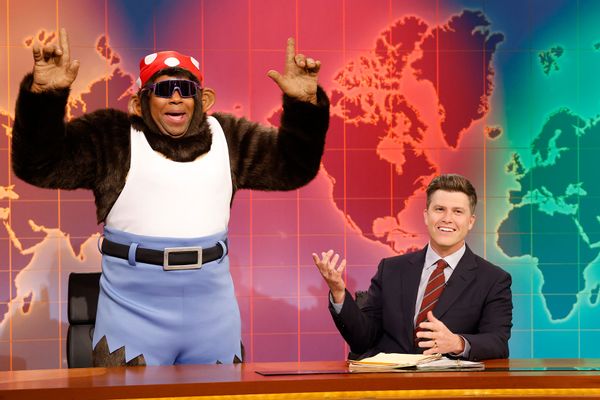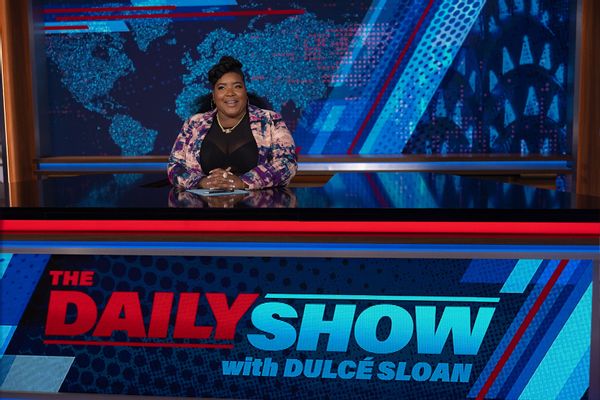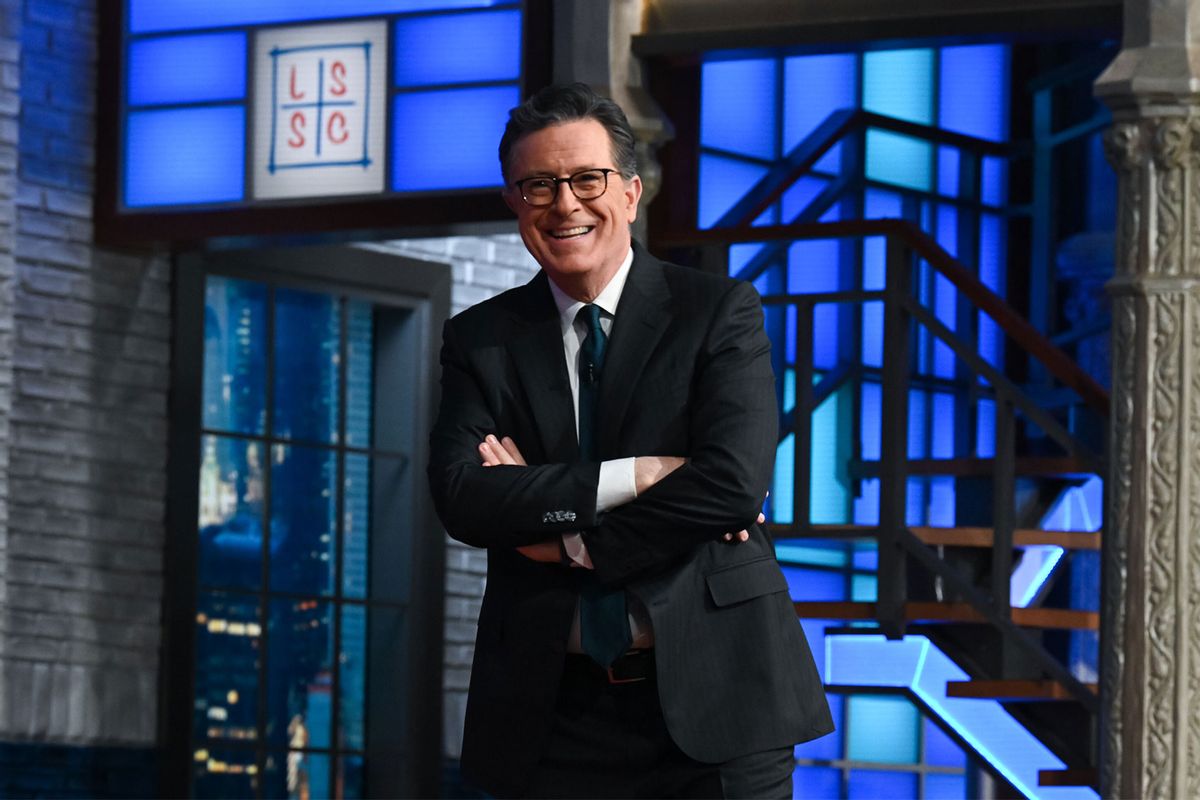The prevailing maxim of the so-called Golden Age of Television is that TV is a writer's medium. Everybody says so: Longtime film stars explain their jump to the smaller screen by hailing the richness of the storytelling and expanded opportunity to inhabit a character and their stories. Viewers pore over scenes and dialogue with a level of attentiveness once reserved for great literature. Streamers and channels are constantly on the hunt for the next great prestige project.
All this elevated praise comes back to the writing, but from the perspective of Writers Guild of America members, those high compliments aren't translating to economic returns that TV scribes can live on. This is why as of 12:01 a.m. Tuesday, May 2, the WGA is officially on strike against the Alliance of Motion Picture and Television Producers.
The AMPTP negotiators represent Netflix, Amazon, Apple, Disney, Discovery-Warner, NBC Universal, Paramount and Sony.
Since the two sides did not reach a new minimum bargaining agreement by the May 1 deadline, more than 11,500 WGA members who work in film and television have stopped writing and have either joined or are observing WGA picket lines.
"Here is what all writers know: the companies have broken this business. They have taken so much from the very people, the writers, who have made them wealthy," says the WGA in an official statement. "We had hoped to do this through reasonable conversation. Now we will do it through struggle. For the sake of our present and our future, we have been given no other choice." (Salon's unionized employees are represented by the WGA East.)
This is the first entertainment industry writers' strike since the stoppage that began in November 2007 and ended in February 2008, lasting for 100 days. For people who remember that season, that strike resulted in shortened TV seasons for shows like "Heroes" and "The Big Bang Theory" and delayed debuts for other shows, including "24." It is estimated to have cost the industry $2.1 billion.
It also precipitated a surge in reality TV as networks turned to unscripted formats – competitions, game shows, and sports – to fill the void.
For the most part, and depending on your viewing habits, many people may not notice the strike's impact straightaway. While the WGA's agreement covers writing for feature film, television and scripted projects for streaming services, along with writing for network news magazine programs, not every TV sector will be impacted immediately or equally. From the consumer's viewpoint, it will be a rolling effect.
 Kenan Thompson as Funky Kong and anchor Colin Jost during SNL Weekend Update on Saturday, April 15, 2023 (Will Heath/NBC)
Kenan Thompson as Funky Kong and anchor Colin Jost during SNL Weekend Update on Saturday, April 15, 2023 (Will Heath/NBC)
The sticking points
Before getting into that, it's helpful to understand the barest of basics of why the WGA is striking now. The short answer is the same as the ones that drive nearly every industry work stoppage, in that it comes down to improved working conditions and compensation.
Contrary to what the average person may believe about TV writers, they are not rich. Testimonials that WGA writers have posted on social media in the weeks leading up to the strike include stories of struggling to pay their rent or afford groceries. The gap between the compensation at the top of the studio food chain and the writers creating content that yields profits for a studio has always been massive. The age of streaming has only widened that chasm.
Contrary to what the average person may believe about TV writers, they are not rich.
WGA member and "Adam Ruins Everything" star Adam Conover spelled it out more precisely today in a CNN interview. "I'd point out the fact that David Zaslav, the CEO of Warner Bros. Discovery [and CNN's parent company] was paid $250 million last year. A quarter of a billion dollars. That's about the same level as what 10,000 writers are asking him to pay all of us collectively," he explained, adding that Netflix's Ted Sarandos made about $50 million last year.
"These companies are making enormous amounts of money. Their profits are going up," Conover continued. "It's ridiculous for them to plead poverty when the writers who are making their shows some of them are not able to pay their rent or their mortgages."
Relatively new industry practices have only made writers' ability to make a living more untenable. Among the top issues WGA members are fighting for is an overhaul of the residuals model, which the age of streaming has rendered all but obsolete.
To explain how residuals work, when a writer is credited on an episode of TV, in the yesteryear of broadcast dominance, whenever that episode would encore, the writer would receive a portion of the ad revenue generated by its repeat airing. Since most streaming services don't have ads or show them in reduced amounts, and most writers aren't included in back-end deals, that has translated to paltry-to-negligible returns for those content creators.
And worse, if a streamer decides to cut costs they're just as likely to simply remove a series from their catalog completely.
Related to this is the rise of what's known as "mini rooms," in which smaller teams of writers are hired to flesh out episodes of a show before a studio decides to put it in production. These writers typically aren't hired to staff that show, leaving it to the showrunner to handle all rewrites by themselves, and starving the writers who worked on those episodes from a slice of any future profit those shows may generate.
 "Swarm" (Amazon Studios)
"Swarm" (Amazon Studios)
One of the most astonishing examples of this occurred behind the scenes of "Swarm," Amazon's recently released critically acclaimed hit Donald Glover produced with "Atlanta" collaborator Janine Nabers, its showrunner. As Nabers shared in a New Yorker article spelling out the TV writer's dilemma, "Swarm" is the product of a 14-week mini room entirely conducted on Zoom that ended in early 2021:
But it wasn't green-lighted until the second episode was shooting, a year later. Nabers was pregnant during the interim, and she was left to finish the season alone. "So that's a year of me by myself, writing scripts and begging the people that I was working for to allow me to bring in more help," she said.
The WGA contends that the current system mimics a gig workers economy, with writers hired for temporary work with no guarantees of stability, little chance of advancement – even for some seasoned showrunners – and no reliance on that residual income that once enabled them to pay their bills between TV seasons and jobs. And with studios threatening to further expand profits using AI to write scripts, the situation was not going to improve organically.
What you (won't) see on your screen
Circling back to the original question, how might the strike impact the ordinary TV viewer? That will depend on how long it lasts. It could be resolved quickly, but with tech companies such as Amazon, Netflix and Apple in the mix, none of which are particularly union-friendly, it could drag out for weeks.
And that's before factoring in the directors' and actors' guilds negotiations (i.e. DGA and SAG-AFTRA) with the AMPTP. Their contracts don't expire until June 30.
In the short term, the first productions to stop will be late-night TV shows. The hosts of "The Late Show with Stephen Colbert" and "Late Night with Seth Meyers" announced their solidarity with the WGA on recent episodes of their shows and have indeed paused.
"I also feel very strongly that what the writers are asking for is not unreasonable. And as a proud member of the guild, I'm very grateful that there is an organization that looks out for the best interests of writers," Meyers says. "So if you don't see me here next week, know that it is something that is not done lightly."
"The Tonight Show Starring Jimmy Fallon," "Jimmy Kimmel Live!" "Last Week Tonight with John Oliver" and "Real Time with Bill Maher" have all gone dark as of Tuesday.
 Dulce Sloan at "The Daily Show" desk. (Photo courtesy of Comedy Central.)
Dulce Sloan at "The Daily Show" desk. (Photo courtesy of Comedy Central.)
Comedy Central also confirmed that "The Daily Show" has temporarily halted production, according to sources close to the show. It, along with the broadcast late-night talkers, will air repeats until further notice. This shortchanges for Dulce Sloan, the latest correspondent to rotate behind the desk. Her sole episode as host so far aired Monday.
"Saturday Night Live" is also out of commission, meaning that Pete Davidson's hosting gig has been put on hold too. But then, like most broadcast shows, its season finale was set to air on May 20. That episode's host had not yet been announced, so if the strike is resolved by then, Davidson may yet be slotted in to make his "SNL" hosting debut.
"The View" announced that it will remain in production. So will "Gutfeld!" which, if you've experienced what passes for joke writing on that show, isn't surprising.
The next sector that may be tangibly impacted will be the broadcast fall TV season. Network schedules are set to be announced at upfronts within the next few weeks, but if the strike drags on through the summer, productions will be delayed along with premiere dates. This is where unscripted content may creep into primetime with more frequency.
Streamers, on the other hand, have their content banked well in advance, so the extent of the strike's impact on them will depend on how deep their benches are. We may well see a slower episodic release pace for popular shows, an increase in true crime productions, and more liberal elevations of foreign content.
But as with any strike, what we don't know far outweighs what we do. For example, the 2007-2008 writers strike did reach a point at which a few late-night shows returned to the air without their writers, yielding mixed results.
"The survival of writing as a profession is at stake in this negotiation," says the WGA in a statement to its members. Viewers who value high-quality television should bear that in mind and hope for a fair resolution that improves conditions for the medium's storytellers as opposed to a swift one that favors our convenience.



Shares